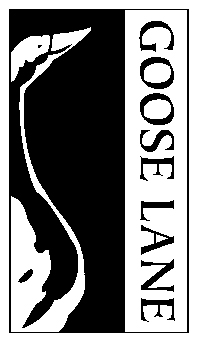Poems for the Advisory Committee on Antarctic Names (eBOOK)
108 pages
Published: July 29, 2014
Poetry
PDF: 9780864928139 $14.95
In this artfully crafted collection, Soraya Mariam Peerbaye leaps onto the stage with aplomb. She examines how naming expresses our relationship with each other and the natural world and how meaning is affected when there is no permanent human settlement to remember names.
Published: July 29, 2014
Poetry
PDF: 9780864928139 $14.95
In this artfully crafted collection, Soraya Mariam Peerbaye leaps onto the stage with aplomb. She examines how naming expresses our relationship with each other and the natural world and how meaning is affected when there is no permanent human settlement to remember names.
Binding her book into three segments, she explores in exquisite detail the concrete and the ephemeral — objects of play, profession, and hobbies. Here is a poetic treatise on the semantics of naming and gesture; how they can express possession and power over another, or kinship, inquisitiveness, openness, mercy, and love. This astonishing sequence of poems moves from the tip of South America to the Antarctic and back, with a lightness of being in the floating world of incisive language.
+Show more
Author
Soraya Mariam Peerbaye is of Mauritian ancestry. Her poetry has been published in journals such as Prairie Fire and The New Quarterly and in Red Silk: An Anthology of South Asian Canadian Women Poets.
Reviews
"A sense of place and story dominates this first collection. Soraya Peerbaye... has an ear for languages and how it shapes experience... Peerbaye as a companion-poet is quietly deft, her voice ranging from lyrical to musical plain-speaking." — Arc Poetry Magazine
"These are marvellous poems, deft, rich, searching, and with remarkable range: tender in recalling her father's French and Creole roots, spare and brilliant in depicting the landscape of Antarctica. For Peerbaye words connect lives across time and space. Reading her poems sharpens our own connection with the world." — John Steffler
"If the poet has a duty to see and name, Soraya Peerbaye has answered the call. I believe in this, the object, quotidian, beloved, she writes, fully aware of how names change as we encounter them, lose and regain and even rename them, in turn renaming us. Unapologetically gentle and intimate, this ambitious first book is not a mere coming-of-age, but a coming into one's own, introducing us to an explorer aware of the joys and dangers of intrusion." — Priscila Uppal
"These are marvellous poems, deft, rich, searching, and with remarkable range: tender in recalling her father's French and Creole roots, spare and brilliant in depicting the landscape of Antarctica. For Peerbaye words connect lives across time and space. Reading her poems sharpens our own connection with the world." — John Steffler
"If the poet has a duty to see and name, Soraya Peerbaye has answered the call. I believe in this, the object, quotidian, beloved, she writes, fully aware of how names change as we encounter them, lose and regain and even rename them, in turn renaming us. Unapologetically gentle and intimate, this ambitious first book is not a mere coming-of-age, but a coming into one's own, introducing us to an explorer aware of the joys and dangers of intrusion." — Priscila Uppal








